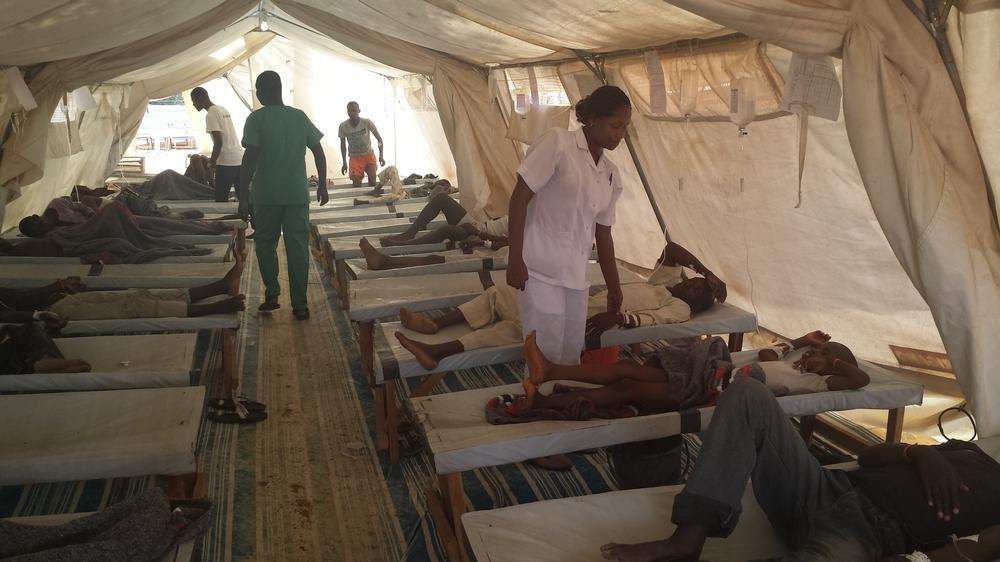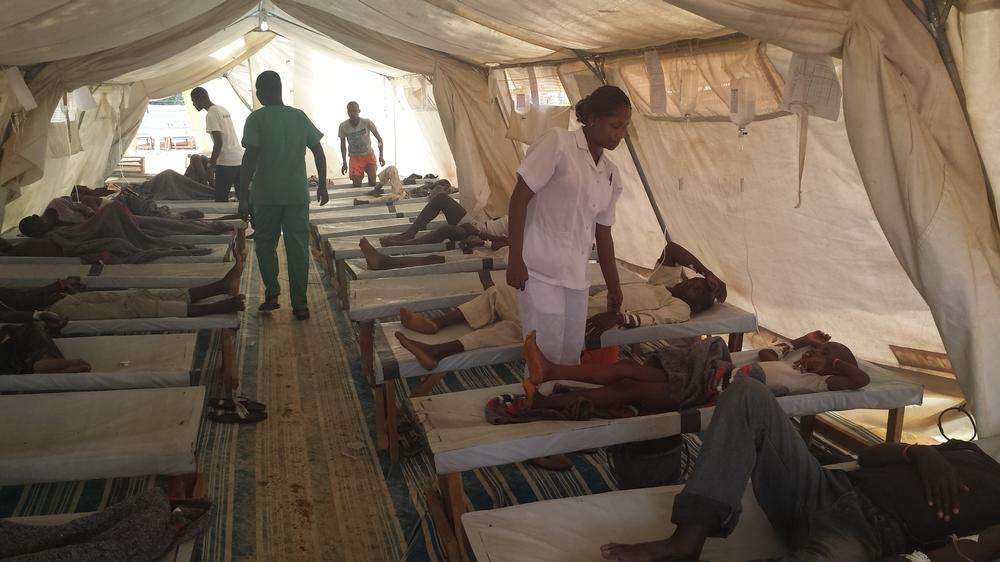A cholera outbreak that began in January 2014 in northeastern Nigeria's Bauchi state is now over. More than 15,500 cases were reported; Doctors Without Borders/Médecins Sans Frontières (MSF) teams in Bauchi treated more than 13,500 of them.
Fourteen of the twenty districts of Bauchi state were affected by the cholera outbreak, Bauchi district accounted for over 90 percent of all the cases reported (the population of Bauchi district is nearly 608,000). Two weeks after the beginning of the outbreak, MSF decided to intervene, beginning with a cholera treatment unit of 30 beds in Kandahar (a suburb of Bauchi town), then a 150 bed cholera treatment center at the main teaching hospital of Bauchi Town.
"This outbreak is more significant than the one we faced four years ago in the same state," says Dr. Abubakr Bakri, head of mission in Abuja. "The number of cases is higher, but fortunately the case fatality rate remained low at 0.5 percent , bringing the number of deaths to 83 so far."
Between 40 and 45 percent of cases were severe, requiring hospitalization for intravenous rehydration. In total, MSF teams treated over 8,500 inpatients in the cholera treatment centers. Thirty oral rehydration points were set up by MSF in the district to treat non-severe cases.
In this type of epidemic, and especially in a country or a city where the population are in the hundreds of thousands, it is important to contain the outbreak through preventive measures such as targeted hygiene to avoid contamination (especially of drinking water). In Bauchi, water supply is mainly from either public or private wells.
The logistics strategy deployed by MSF was very much needed. "We sent out 15 teams to go around Bauchi district conducting bucket chlorination and targeted well chlorination," says Dr. Bakri. "The strategy also involved health education and hygiene messages.” The chlorination of water sources campaign was accompanied by preventive hygiene, transportation of drinking water, and treatment of wastewater.
The intervention was successfully conducted in close collaboration with Bauchi state's Ministry of health and the state’s Primary Health Care Development Agency.





